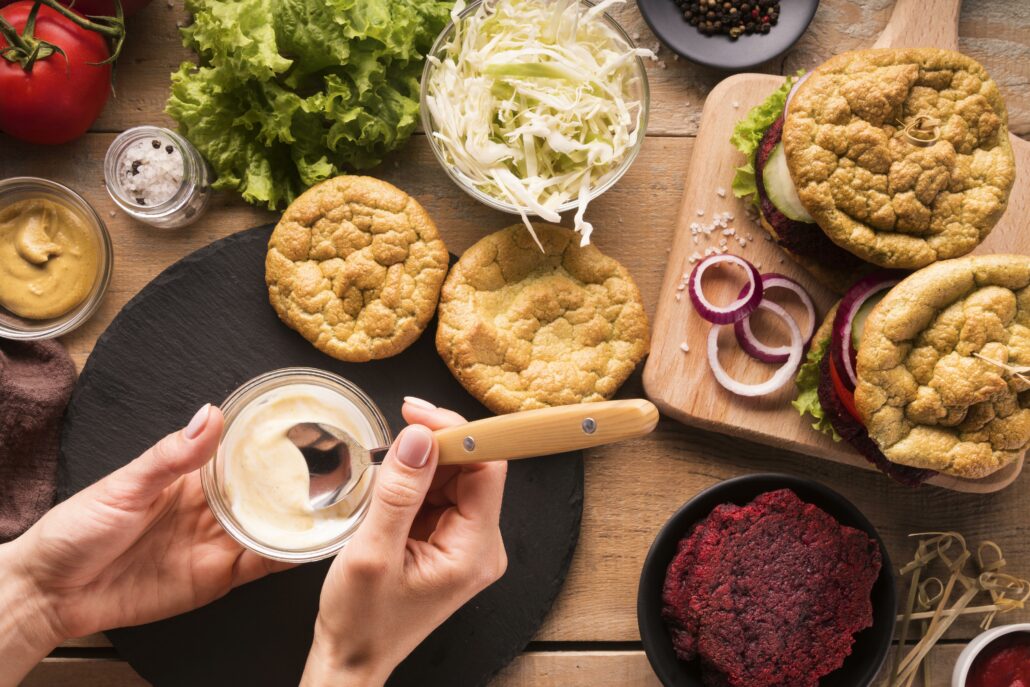Introduction

Gluten sensitivity is becoming a common concern for many people around the world. Whether you’re newly diagnosed or have been managing it for years, dealing with gluten sensitivity can feel overwhelming. However, with the right information and strategies, you can navigate these challenges with confidence.
What is Gluten Sensitivity?
Definition and Symptoms
Gluten sensitivity, also known as non-celiac gluten sensitivity (NCGS), is a condition in which individuals experience symptoms similar to those of celiac disease after consuming gluten, but without the intestinal damage. Symptoms can range from bloating and stomach pain to headaches and fatigue.
Difference Between Gluten Sensitivity and Celiac Disease
It’s important to distinguish between gluten sensitivity and celiac disease. While both conditions involve adverse reactions to gluten, celiac disease is an autoimmune disorder that can cause significant damage to the intestines. Gluten sensitivity, on the other hand, does not cause this damage but can still lead to discomfort and health issues.
Common Challenges Faced by Individuals with Gluten Sensitivity
Identifying Gluten-Containing Foods
One of the biggest challenges for those with gluten sensitivity is identifying which foods contain gluten. Gluten is often hidden in many processed foods, sauces, and even some medications, making it essential to read labels carefully.
Managing Social Situations and Eating Out
Social situations can be particularly tricky. Whether you’re attending a family gathering or dining out with friends, it can be challenging to ensure that your meals are safe and gluten-free. Learning to navigate menus and communicate your dietary needs is crucial.
Diagnosis and Testing
How is Gluten Sensitivity Diagnosed?
Diagnosing gluten sensitivity is often a process of elimination. Since there is no definitive test for gluten sensitivity, doctors usually diagnose it by ruling out other conditions, such as celiac disease or wheat allergy.
The Role of Elimination Diets
Elimination diets are commonly used to diagnose gluten sensitivity. This involves removing gluten from your diet for a period of time and then reintroducing it to see if symptoms return. It’s a straightforward but effective method to identify gluten sensitivity.
The Emotional and Psychological Impact of Gluten Sensitivity
Coping with Lifestyle Changes
Adopting a gluten-free lifestyle can be emotionally taxing. The sudden need to overhaul your diet and routine can lead to feelings of frustration and isolation. It’s important to recognize these emotions and seek support when needed.
Managing Anxiety and Stress Related to Diet
For many, the fear of accidental gluten exposure can lead to significant anxiety. Learning to manage this stress through mindfulness, support groups, or professional counseling can make a big difference in your overall well-being.
Navigating Grocery Shopping
Reading Labels and Identifying Hidden Gluten
Grocery shopping can feel like a minefield when you’re avoiding gluten. Reading labels becomes second nature, but it’s also essential to be aware of hidden sources of gluten, such as in sauces, seasonings, and even supplements.
Budget-Friendly Gluten-Free Shopping Tips
Gluten-free products can be more expensive than their gluten-containing counterparts. To save money, focus on naturally gluten-free foods like fruits, vegetables, and proteins. Buying in bulk and shopping sales can also help reduce costs.
Creating a Gluten-Free Kitchen
Essential Gluten-Free Pantry Staples
A well-stocked gluten-free pantry is essential for success. Some staples include gluten-free flours, oats, rice, quinoa, and a variety of spices and herbs. Having these on hand makes meal preparation much easier.
Tips for Avoiding Cross-Contamination at Home
Cross-contamination is a significant risk for those with gluten sensitivity. Using separate cooking utensils, toasters, and storage containers for gluten-free foods can help prevent accidental exposure.
Gluten-Free Meal Planning and Preparation
Simple Gluten-Free Meal Ideas
Meal planning is key to staying on track with a gluten-free diet. Simple meals like grilled chicken with vegetables, gluten-free pasta dishes, and stir-fries can be both satisfying and safe.
Batch Cooking and Meal Prep Tips
Batch cooking can save time and ensure you always have a gluten-free meal ready. Preparing large portions of meals and freezing them in individual servings can make your busy weeknights stress-free.
Eating Out with Gluten Sensitivity
Strategies for Safe Dining
Eating out doesn’t have to be stressful if you’re well-prepared. Researching restaurants ahead of time and choosing those with gluten-free menus can make dining out enjoyable. Don’t hesitate to ask questions about food preparation to avoid any mishaps.
Gluten-Free Friendly Restaurants
Many restaurants now offer gluten-free options. Look for eateries that clearly label gluten-free items on their menus or those that specialize in gluten-free cuisine. Chains like Chipotle and Outback Steakhouse are known for their gluten-free options.
Socializing and Traveling

How to Communicate Your Dietary Needs
When socializing or traveling, clearly communicating your dietary needs is essential. Whether you’re attending a dinner party or staying at a hotel, informing your hosts or restaurant staff about your gluten sensitivity can help prevent accidental exposure.
Gluten-Free Travel Tips
Traveling with gluten sensitivity requires some extra planning. Pack snacks, research local gluten-free restaurants, and bring along gluten-free meal kits for emergencies. This preparation can make your trip smoother and more enjoyable.
Nutritional Considerations for a Gluten-Free Diet
Ensuring a Balanced Diet Without Gluten
A gluten-free diet can sometimes lack certain nutrients, such as fiber and B vitamins. Incorporating a variety of fruits, vegetables, lean proteins, and gluten-free whole grains is essential to maintain a balanced diet.
Supplementing Essential Nutrients
If you find it challenging to get all your nutrients from food, consider supplements. Consult with a healthcare provider to determine if you need to supplement with vitamins like B12, iron, or calcium.
Dealing with Gluten Exposure
Recognizing Symptoms of Accidental Gluten Ingestion
Despite your best efforts, accidental gluten exposure can happen. Symptoms can include digestive issues, headaches, and fatigue. Recognizing these symptoms early can help you take steps to manage them.
Steps to Recover from Gluten Exposure
If you do accidentally consume gluten, stay hydrated, rest, and consider taking digestive enzymes to help your body recover more quickly. It’s also helpful to keep a food diary to track any reactions and learn from them.
Support Systems and Resources
Joining Gluten-Free Communities
You don’t have to go through this alone. Joining gluten-free communities, whether online or in person, can provide valuable support, recipes, and advice. Groups like the Gluten Intolerance Group (GIG) offer resources and support.
Recommended Books, Blogs, and Apps
There are countless resources available to help you manage gluten sensitivity. Books like “The Gluten-Free Bible,” blogs like “Gluten-Free Girl,” and apps like “Find Me Gluten-Free” can offer recipes, tips, and restaurant recommendations.
Advances in Gluten-Free Products and Innovations
Emerging Gluten-Free Alternatives
The market for gluten-free products has expanded significantly. New innovations include gluten-free breads, pastas, and even beer that taste better than ever before. These advances make living gluten-free easier and more enjoyable.
Innovations in Gluten-Free Food Manufacturing
Gluten-free food manufacturing has come a long way. Advances in processing techniques and ingredient sourcing mean that gluten-free products are now more accessible, affordable, and delicious.
Conclusion
Living with gluten sensitivity can be challenging, but with the right information, support, and preparation, it’s entirely manageable. By understanding your condition, planning your meals, and utilizing the resources available, you can lead a healthy, fulfilling life without gluten. Remember, you’re not alone—millions of people around the world are navigating the same journey, and together, we can overcome these challenges.
FAQs
- What are the first steps after being diagnosed with gluten sensitivity?
- The first step is to start eliminating gluten from your diet. Consult with a dietitian to ensure you’re still getting all the necessary nutrients.
- How can I tell if a product is truly gluten-free?
- Look for products labeled “gluten-free” and check for certifications from reputable organizations. Always read the ingredients list for any hidden gluten.
- What should I do if I accidentally consume gluten?
- If you accidentally consume gluten, drink plenty of water, rest, and consider taking digestive enzymes. It may also help to consult with your healthcare provider for additional advice.
- Are gluten-free diets healthy for everyone?
- Gluten-free diets are essential for those with gluten-related disorders but may not offer additional health benefits for those without gluten sensitivity.
- How can I ensure my child follows a gluten-free diet at school?
- Communicate with school staff about your child’s dietary needs. Provide gluten-free snacks and meals, and educate your child on how to avoid gluten-containing foods.
